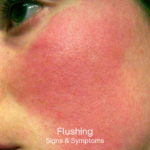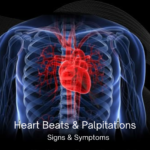Understanding Hair Loss: Causes, Prevention, and Treatment
Hair loss, medically known as alopecia, is a common condition that affects millions of people worldwide. While it is often associated with aging, hair loss can occur at any age and affect both men and women. Understanding the causes, prevention methods, and treatment options is crucial for those experiencing hair loss and looking for ways to manage it effectively.
Causes of Hair Loss
Hair loss can be attributed to a variety of factors, including genetics, hormonal changes, medical conditions, medications, and lifestyle choices. Here are some of the most common causes:
- Genetics: Androgenetic alopecia, commonly known as male or female pattern baldness, is the most prevalent cause of hair loss. It is inherited from one’s parents and typically follows a predictable pattern of thinning hair along the crown and hairline in men, and diffuse thinning across the scalp in women.
- Hormonal Changes: Hormonal fluctuations can trigger hair loss. Conditions such as pregnancy, childbirth, menopause, and thyroid problems can cause temporary or permanent hair shedding.
- Medical Conditions: Several medical conditions are associated with hair loss. These include autoimmune diseases like alopecia areata, scalp infections, and skin disorders such as psoriasis and seborrheic dermatitis.
- Medications: Certain medications can lead to hair loss as a side effect. These include drugs used for cancer, arthritis, depression, heart problems, and high blood pressure.
- Stress and Trauma: Physical or emotional stress can cause a type of hair loss called telogen effluvium, where a significant number of hair follicles enter the resting phase and subsequently fall out.
- Nutritional Deficiencies: A lack of essential nutrients such as iron, protein, and vitamins can lead to hair thinning and loss. Poor diet and eating disorders can contribute to this deficiency.
- Hairstyling Practices: Excessive use of hair treatments and styles that pull on the hair, such as tight braids, ponytails, and extensions, can cause a type of hair loss called traction alopecia.
Prevention of Hair Loss
While not all hair loss can be prevented, there are several steps one can take to minimize the risk and maintain healthy hair:
- Healthy Diet: Eating a balanced diet rich in vitamins and minerals is essential for hair health. Ensure adequate intake of iron, zinc, vitamin D, and proteins, which are crucial for hair growth.
- Gentle Hair Care: Avoid harsh treatments and limit the use of heat styling tools. Use gentle shampoos and conditioners, and avoid styles that put excessive tension on the hair.
- Stress Management: Managing stress through techniques such as meditation, yoga, and regular exercise can help reduce the risk of stress-induced hair loss.
- Regular Scalp Care: Keeping the scalp clean and free from infections can prevent hair loss. Regularly washing the hair and using appropriate scalp treatments can help maintain scalp health.
- Medical Check-ups: Regular check-ups with a healthcare provider can help identify and treat underlying medical conditions that may cause hair loss.
Treatment Options for Hair Loss
There are various treatment options available for those experiencing hair loss. These range from medications and topical treatments to surgical procedures and alternative therapies.
- Medications:
- Minoxidil: An over-the-counter topical treatment that stimulates hair growth and slows hair loss. It is effective for both men and women.
- Finasteride: A prescription oral medication for men that reduces hair loss by inhibiting the production of dihydrotestosterone (DHT), a hormone linked to hair thinning.
- Hair Transplant Surgery: This surgical procedure involves removing hair follicles from a part of the body with dense hair growth and transplanting them to the balding areas. It is a permanent solution for hair loss.
- Laser Therapy: Low-level laser therapy (LLLT) is a non-invasive treatment that uses red light to stimulate hair follicles and promote hair growth.
- Platelet-Rich Plasma (PRP) Therapy: This treatment involves injecting platelet-rich plasma derived from the patient’s blood into the scalp. PRP contains growth factors that can stimulate hair growth.
- Alternative Therapies: Some people find relief from hair loss through alternative treatments such as acupuncture, herbal supplements, and essential oils. However, the effectiveness of these treatments varies, and they should be approached with caution.
- Wigs and Hairpieces: For those who prefer a non-medical solution, wigs and hairpieces offer an immediate and effective way to conceal hair loss.
Coping with Hair Loss
Hair loss can have a significant impact on an individual’s self-esteem and emotional well-being. It is important to address these feelings and seek support when needed. Here are some tips for coping with hair loss:
- Stay Informed: Educating yourself about hair loss and the available treatment options can help you make informed decisions and feel more in control of the situation.
- Seek Support: Talking to friends, family, or joining a support group can provide emotional support and help you cope with the psychological impact of hair loss.
- Consider Professional Help: If hair loss is affecting your mental health, consider speaking with a therapist or counselor who can help you navigate your feelings and develop coping strategies.
- Focus on Overall Health: Maintaining a healthy lifestyle, including regular exercise, a balanced diet, and adequate sleep, can improve your overall well-being and help you cope with hair loss.
Conclusion
Hair loss is a common condition with various causes and treatment options. By understanding the factors that contribute to hair loss and taking proactive steps to prevent and treat it, individuals can manage this condition effectively. Whether through medical treatments, lifestyle changes, or supportive therapies, it is possible to address hair loss and maintain a positive self-image. Remember, seeking professional advice and support is crucial in navigating the journey of hair loss.
4o





